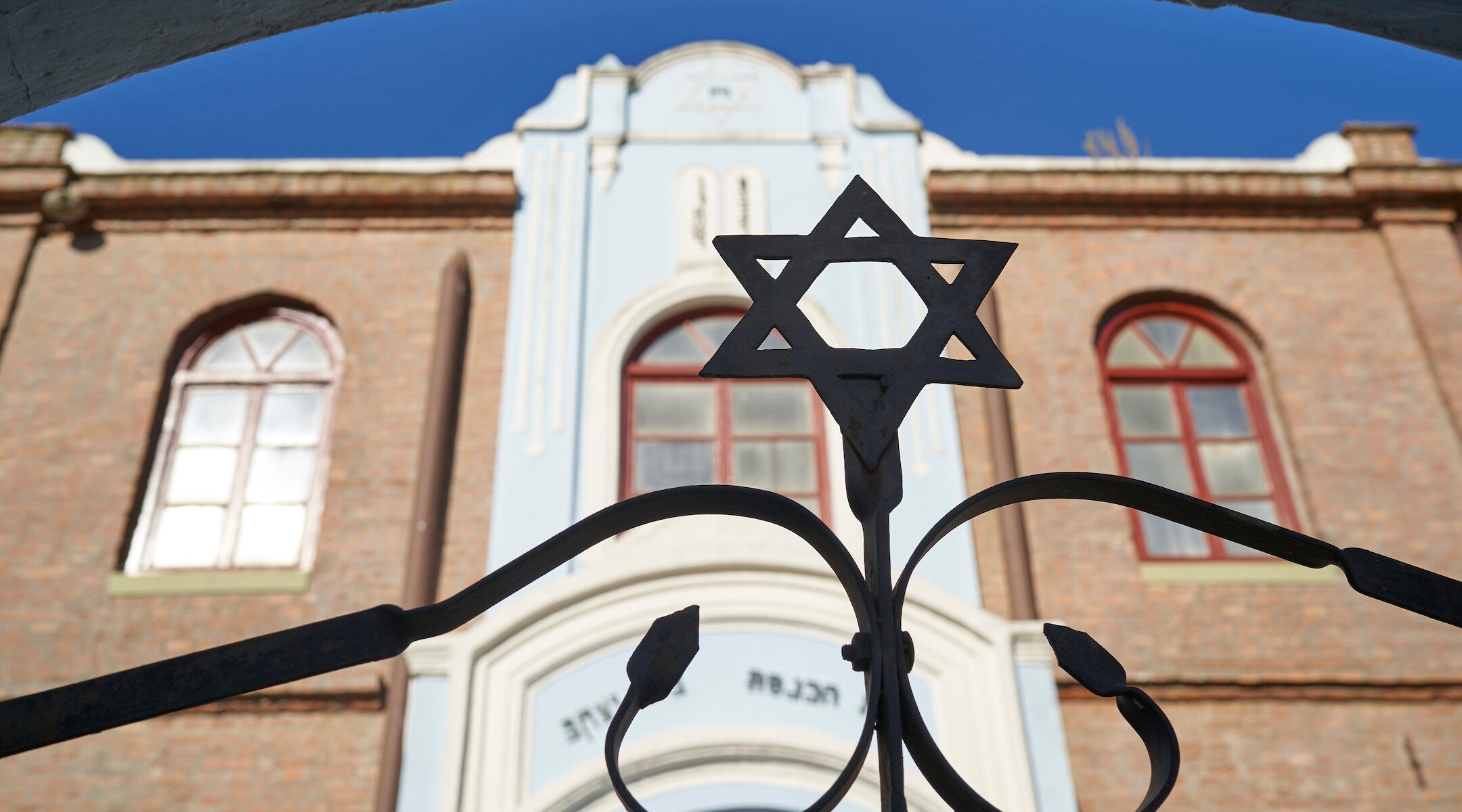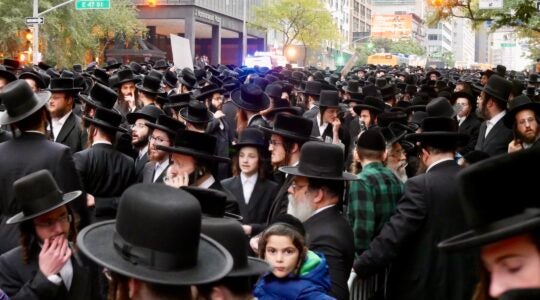(JTA) – At least two more synagogues in the United States evacuated their congregants over the weekend following bomb threats, the latest in a series of such calls that have put dozens of congregations on high alert heading into the High Holidays.
One of the synagogues was threatened during the pre-Rosh Hashanah Selichot services on Saturday night, in a sign that the perpetrators of the wave of attacks are paying careful attention to when synagogues are holding events before calling in their threats.
Since mid-July, at least 49 synagogues in 13 states have received the threatening calls, none of which have been linked to credible bomb threats, according to the Anti-Defamation League. That was up from 26 congregations four weeks ago —and the ADL expects the threats to continue when the High Holidays begin with the start of Rosh Hashanah on Friday evening.
“Every weekend this network of swatters continues to identify targets and are calling in fake bomb threats,” Oren Segal, vice president of the ADL’s Center on Extremism, told the Jewish Telegraphic Agency, using a term referring to pranks that draw out a large number of police officers. “So that number is increasing and will potentially keep increasing.”
Segal said the calls are part of a coordinated campaign orchestrated by antisemitic trolls and focused on synagogues that livestream their services, so the perpetrators can watch reactions to the threats in real time. But he noted that some institutions have been targeted even though they don’t livestream their events, and that the culprits are also developing a growing interest in non-Jewish institutions such as mosques and Black churches.
The synagogues that received bomb threats this weekend were Congregation Beth Am in Los Altos Hills, California, in the Bay Area, and Congregation B’nai Israel in St. Petersburg, Florida. In both cases, the synagogues emptied out as police conducted full safety sweeps of the premises.
The threat on Beth Am, a Reform congregation, was called in during Friday night services, at a time when the synagogue was hosting U.S. Rep. Anna Eshoo and Jeremy Ben-Ami, president of the liberal Israel lobby J Street. Both guests were reported safe by leaders of the Bay Area congregation.
“As a community, we remain resolute and determined in the face of this act of antisemitic harassment,” read a letter Beth Am congregational leaders sent to their community just before midnight on Friday, after the synagogue had been swept and cleared, according to J. The Jewish News of Northern California, which first reported on the incident.
B’nai Israel, a Conservative congregation, received the threat as congregants were exiting the Selichot services on Saturday night. The St. Petersburg police department and B’nai Israel’s rabbi, Philip Weintraub, confirmed details of the synagogue’s evacuation with JTA.
“It was not disruptive to our worship,” Weintraub told JTA, adding that the police “took it very seriously.”
A spokesperson for the St. Petersburg Police Department told JTA that the investigation was still ongoing, but that law enforcement would treat the incident as a false bomb threat, which is punishable with prison time. Florida has grappled with a recent rise in antisemitic activity, and a new state law aims to make it easier to prosecute “ethnic intimidation.” But that measure hasn’t yet succeeded in curbing a statewide epidemic of antisemitic fliers, some of which were dropped outside the West Palm Beach area over Labor Day.
The Santa Clara County sheriff’s office, which oversees law enforcement in Los Altos Hills, did not return JTA requests for comment on its own bomb threat investigation.
In mid-August, two other synagogues in California also evacuated their livestreamed Shabbat services over a single weekend due to bomb threats.
There have been other evacuations of Jewish institutions that have gone unreported because they have chosen not to publicize them, Segal said.
“They don’t want to necessarily, I presume, give these trolls the satisfaction of letting everybody know every time they’re evacuated,” he said, adding that institutions should make such decisions “based on what they think is best for the community.” In some instances, when synagogues have issued a statement about an evacuation, the perpetrators have used those statements to boast of their success, Segal said.
This is not the first time false bomb threats have been called into a series of Jewish institutions. More than 100 such threats were called into Jewish community centers in the early months of 2017 — most of which, it was later discovered, came from a teen in Israel. In 2020, dozens of JCCs received a separate series of emailed bomb threats.
Weintraub is determined to not be rattled by the experience. Instead, he takes comfort in knowing the congregation already heeds security precautions recommended by police. Heading into Rosh Hashanah, he said, he isn’t scared.
“My understanding is their goal is to shake us, and I’m not going to be shaken,” he said.
JTA has documented Jewish history in real-time for over a century. Keep our journalism strong by joining us in supporting independent, award-winning reporting.






